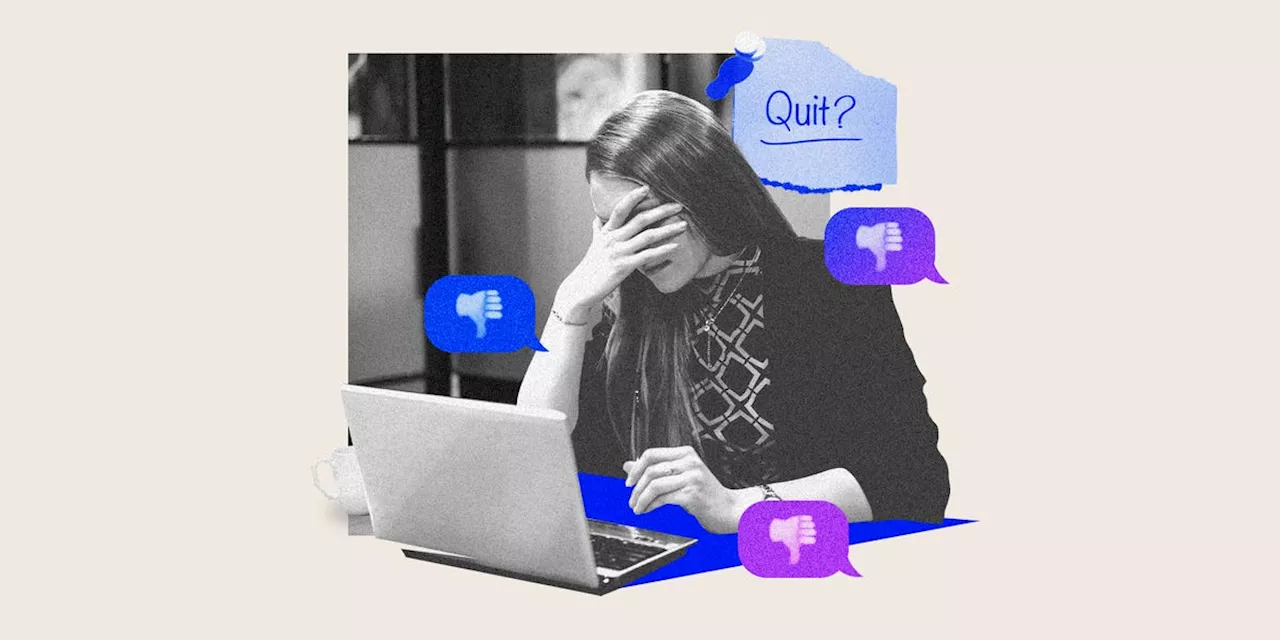A recent Gallup survey reveals a disturbing trend: Gen Z is significantly less engaged in their jobs than previous generations. This article explores the reasons behind this phenomenon, from the rise of remote work and AI anxieties to a growing disillusionment with traditional employment models.
How excited are you about your job these days? If you're feeling pretty bleh, you're right in line with most of your colleagues. Every year, Gallup surveys tens of thousands of Americans about their jobs, and the latest results reveal an exceptionally bummed-out workforce. Only 31% were engaged at work last year — the grouchiest reading in a decade. That alone is worrying news for employers, who need their armies to be motivated.
But there's an even more alarming detail in the report: The slump is driven by a deep disillusionment among young employees. That's a startling development, given that eager-eyed rookies are usually much more enthusiastic about their jobs than grizzled veterans. In fact, morale among those under 35 has tanked so much that they're now less engaged than their older colleagues — an inversion that hasn't happened since 2007. The question is why. Two years ago, when the engagement gap first began to narrow, I argued that the main driver was likely the sudden spike in working from home. You'd think Gen Z would be the most remote-friendly generation, but survey after survey shows that 20-somethings actually have the lowest preference for working from home five days a week. Fresh out of school, they're more likely to rely on the office to make friends. They're also in need of the most mentoring, which doesn't happen as much over Zoom. Left to flail on their own, I concluded, they're less enthusiastic about their jobs. Since my original story, though, I've begun to wonder if other factors are playing a role. For starters, the workplace feels increasingly chaotic and unfriendly these days. Employers have initiated deep layoffs, ordered remote workers to return to the office, and eliminated DEI programs designed to make work feel more equitable and inclusive. The whiplash has sown confusion: In Gallup's survey, only 40% of those under 35 say they know what's expected of them at work. Adding to the uncertainty is the rise of AI. In a separate survey released this month, Gallup found that 78% of adults under 30 think AI will have a negative impact on job opportunities, compared with only 45% of those 65 and older. Such anxieties are bound to be demoralizing: If you think chatbots are going to usurp your job, why put in the effort to get better at it? But I suspect that the biggest factor fueling Gen Z's engagement slump is something deeper than all of the turmoil of the past few years. What if young people are simply more clear-eyed than older generations about what they can expect from their jobs — and what work can't provide them? Maybe it's not that they're lazy or entitled. Maybe they're just unwilling to endure all the shitty stuff that comes with a job in return for an elusive payoff decades down the road. Of course, work has always been a drag — difficult, dull, and demanding. That's why they call it work. But for previous generations, there were enticements that made the daily grind seem worth it. For boomers, the prize was a lifetime of job security. For Gen Xers, it was the prestige of a corner office. For millennials, it was fulfilling your true potential and making the world a better place. Whatever their dreams, each generation worked for years before they discovered that the rewards they'd been promised in return for their effort often turned out to be a mirage. Gen Zers, on the other hand, seem to have grasped the transactional nature of work from the very outset. They don't have any of the naive expectations about employment that I did when I was their age. They've seen their parents work for years in soul-deadening jobs, only to wind up without enough to retire. They get that hustle culture is a one-way ticket to burnout. And they know that no amount of putting up with shit at work will protect them from being shitcanned. They're disengaged at work because they don't trust that they'll be rewarded for working. That's why so many Gen Zers are focused on side hustles: They're so fed up with their employers that they'd rather be their own boss. It also explains why they're captivated by FIRE, the viral movement that's short for financial independence, retire early. Just a few years into their careers, they're already dreaming of the day they'll be free of them. So what should employers do, given Gen Z's startling level of disengagement? First off, don't order everyone back to the office. As I wrote two years ago, research shows that RTO edicts only demoralize everyone even more. Instead, employers need to be more intentional about designing jobs to meet the needs of their junior staff. They can't leave things like mentoring and networking to chance, the way they did when the office forced everyone into proximity. They also need to provide employees with more predictability and stability, rather than swinging from extreme to extreme the way they've been doing with remote work and diversity initiatives
Gen Z Employee Engagement Job Dissatisfaction Remote Work AI Future Of Work Workplace Culture Millennial Work-Life Balance
United States Latest News, United States Headlines
Similar News:You can also read news stories similar to this one that we have collected from other news sources.
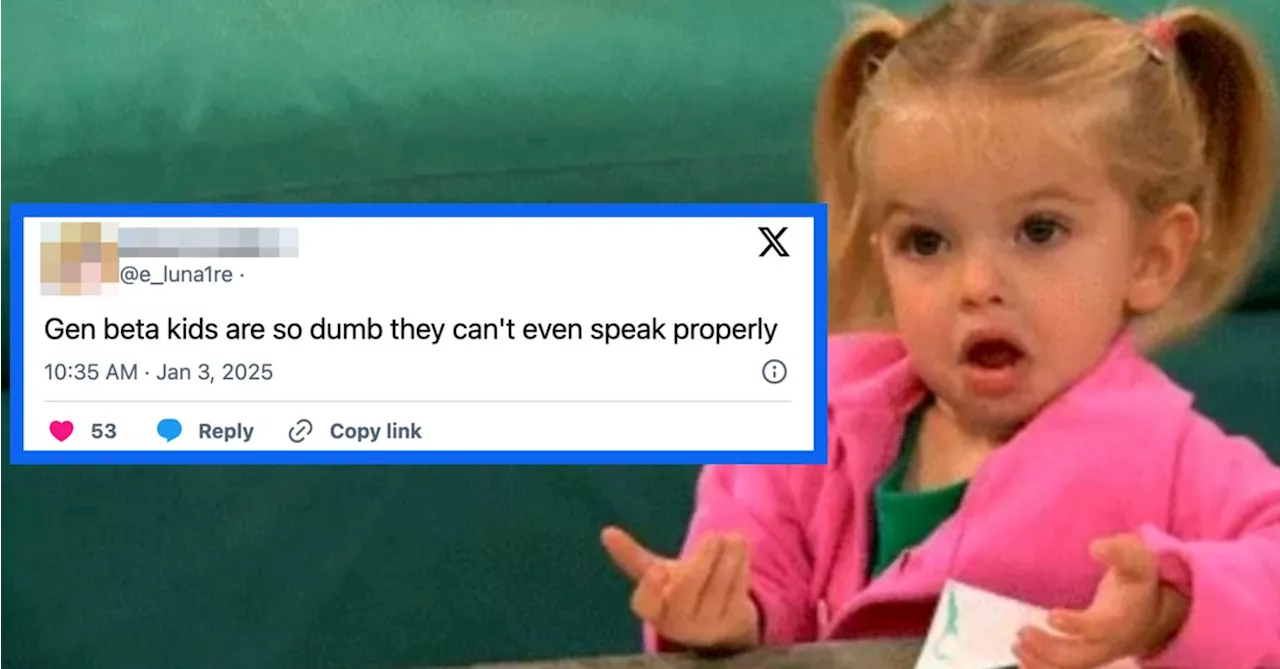 Gen Beta Arrives: Hilarious Reactions From Gen Z OnlineWith the birth of Gen Beta, between 2025 and 2039, Gen Z is officially two generations older, prompting humorous responses online. The article highlights the generational shift and features 19 funny posts from Gen Z as they grapple with the concept of this new generation.
Gen Beta Arrives: Hilarious Reactions From Gen Z OnlineWith the birth of Gen Beta, between 2025 and 2039, Gen Z is officially two generations older, prompting humorous responses online. The article highlights the generational shift and features 19 funny posts from Gen Z as they grapple with the concept of this new generation.
Read more »
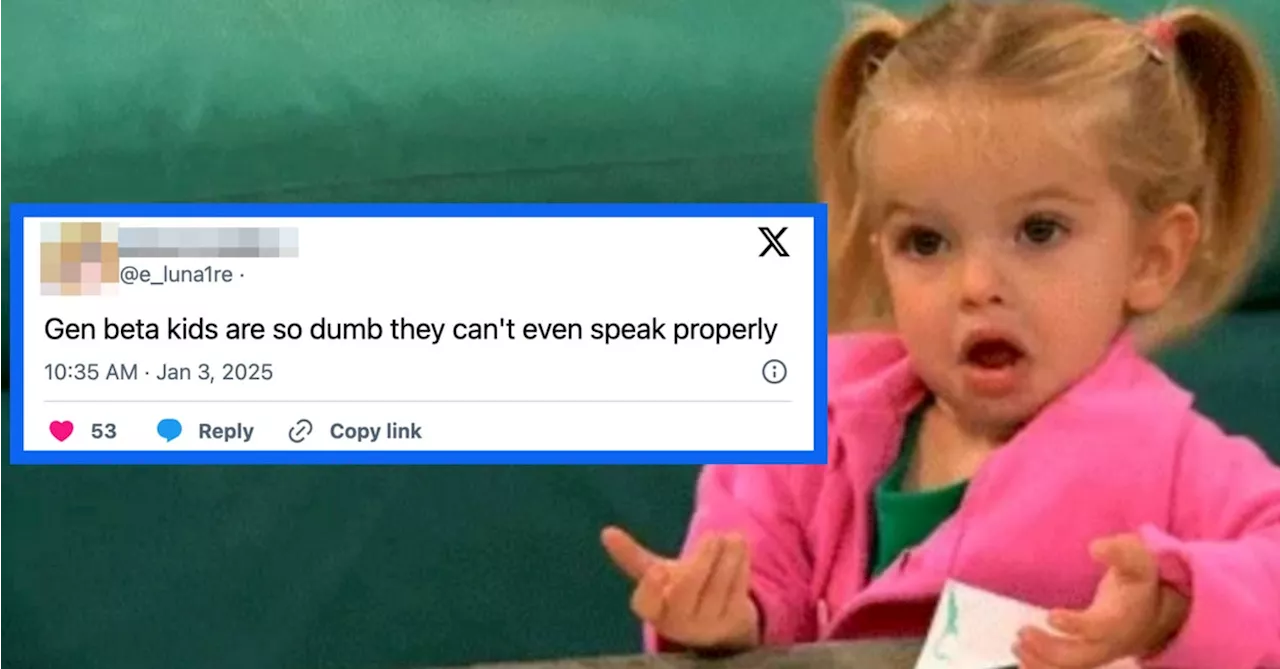 Gen Z Hilariously Roasts the Arrival of Gen BetaWith the official arrival of Generation Beta, born between 2025 and 2039, Gen Z has taken to social media with humorous reactions to being officially two generations old. The article highlights the wit and self-awareness of Gen Z as they grapple with the passage of time and the emergence of a new generation.
Gen Z Hilariously Roasts the Arrival of Gen BetaWith the official arrival of Generation Beta, born between 2025 and 2039, Gen Z has taken to social media with humorous reactions to being officially two generations old. The article highlights the wit and self-awareness of Gen Z as they grapple with the passage of time and the emergence of a new generation.
Read more »
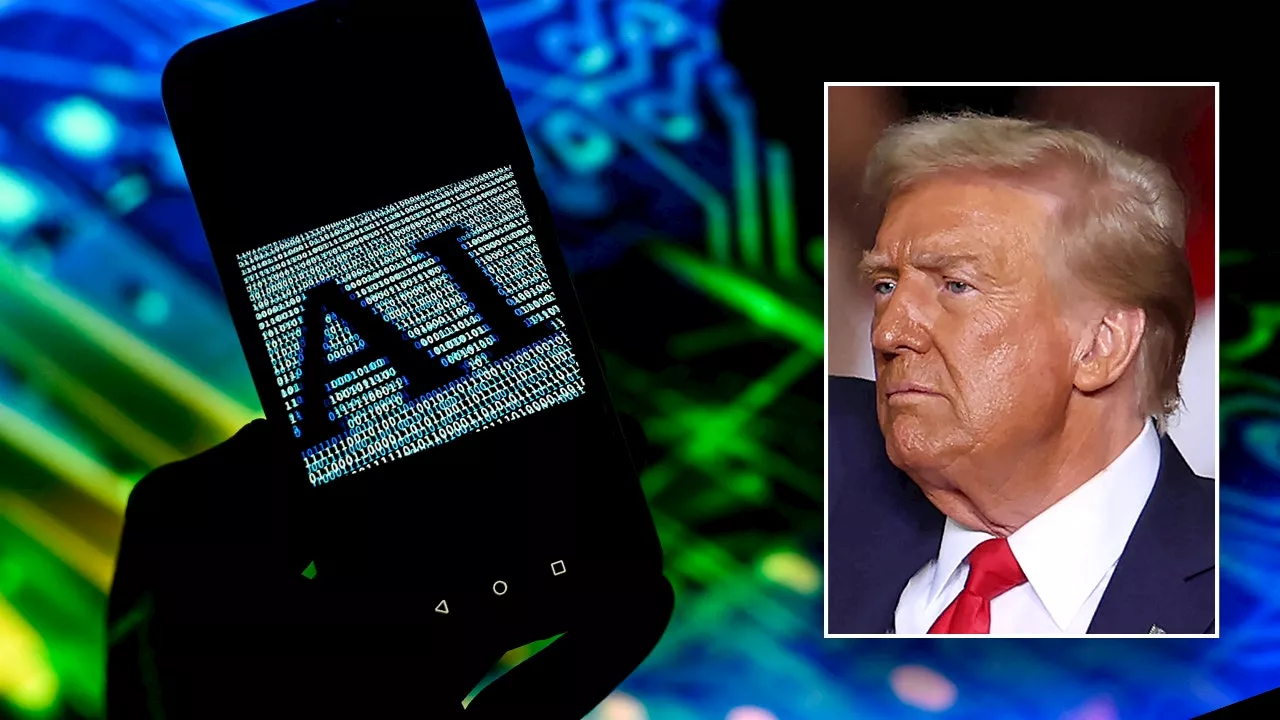 Fox News AI Newsletter: Will Your Job Survive Trump's Gen AI Revolution?This week's Fox News AI newsletter explores the impact of the Trump administration's deregulatory agenda on generative AI, featuring insights on job security, Zachary Levi's biblical disaster comparison, and a basketball-playing robot setting a Guinness World Record.
Fox News AI Newsletter: Will Your Job Survive Trump's Gen AI Revolution?This week's Fox News AI newsletter explores the impact of the Trump administration's deregulatory agenda on generative AI, featuring insights on job security, Zachary Levi's biblical disaster comparison, and a basketball-playing robot setting a Guinness World Record.
Read more »
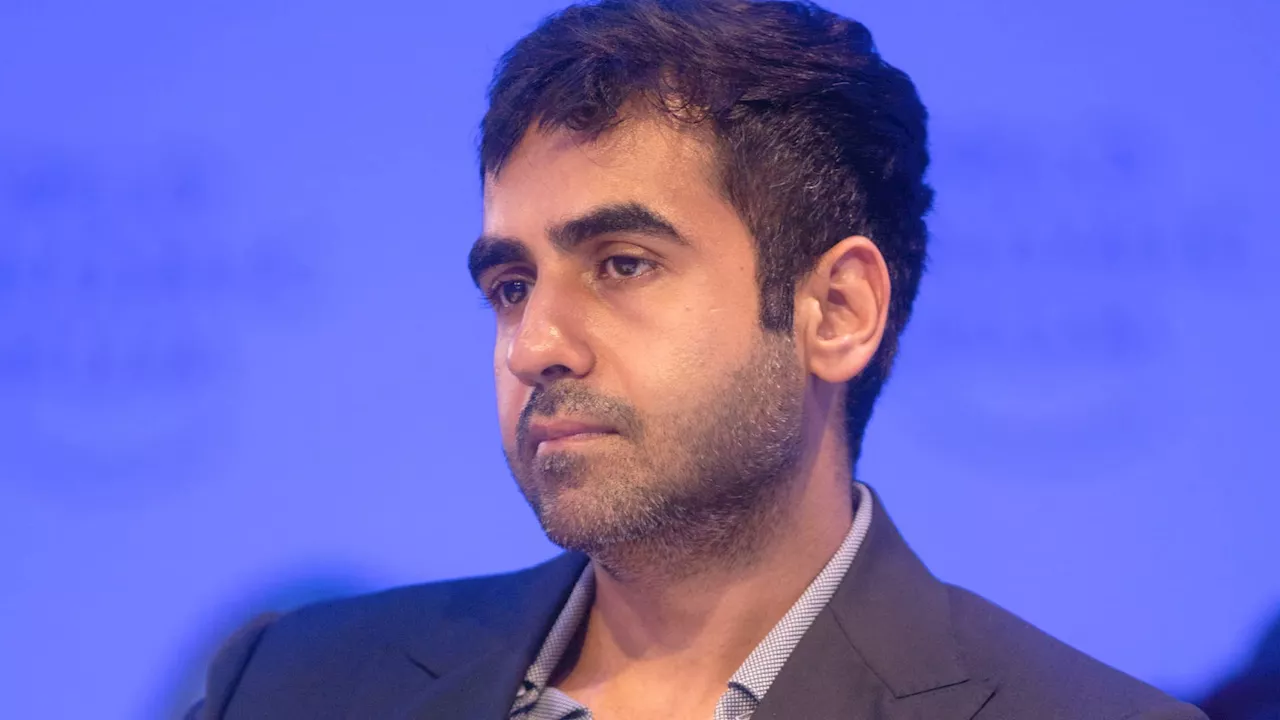 Why Seeking Advice From Gen Z Can Be Crucial for Your BusinessNikhil Kamath, co-founder of Zerodha, argues that businesses should look to Gen Z for inspiration and advice. He believes that young people's fresh perspective and understanding of social media trends can be invaluable for shaping marketing strategies and fostering innovation.
Why Seeking Advice From Gen Z Can Be Crucial for Your BusinessNikhil Kamath, co-founder of Zerodha, argues that businesses should look to Gen Z for inspiration and advice. He believes that young people's fresh perspective and understanding of social media trends can be invaluable for shaping marketing strategies and fostering innovation.
Read more »
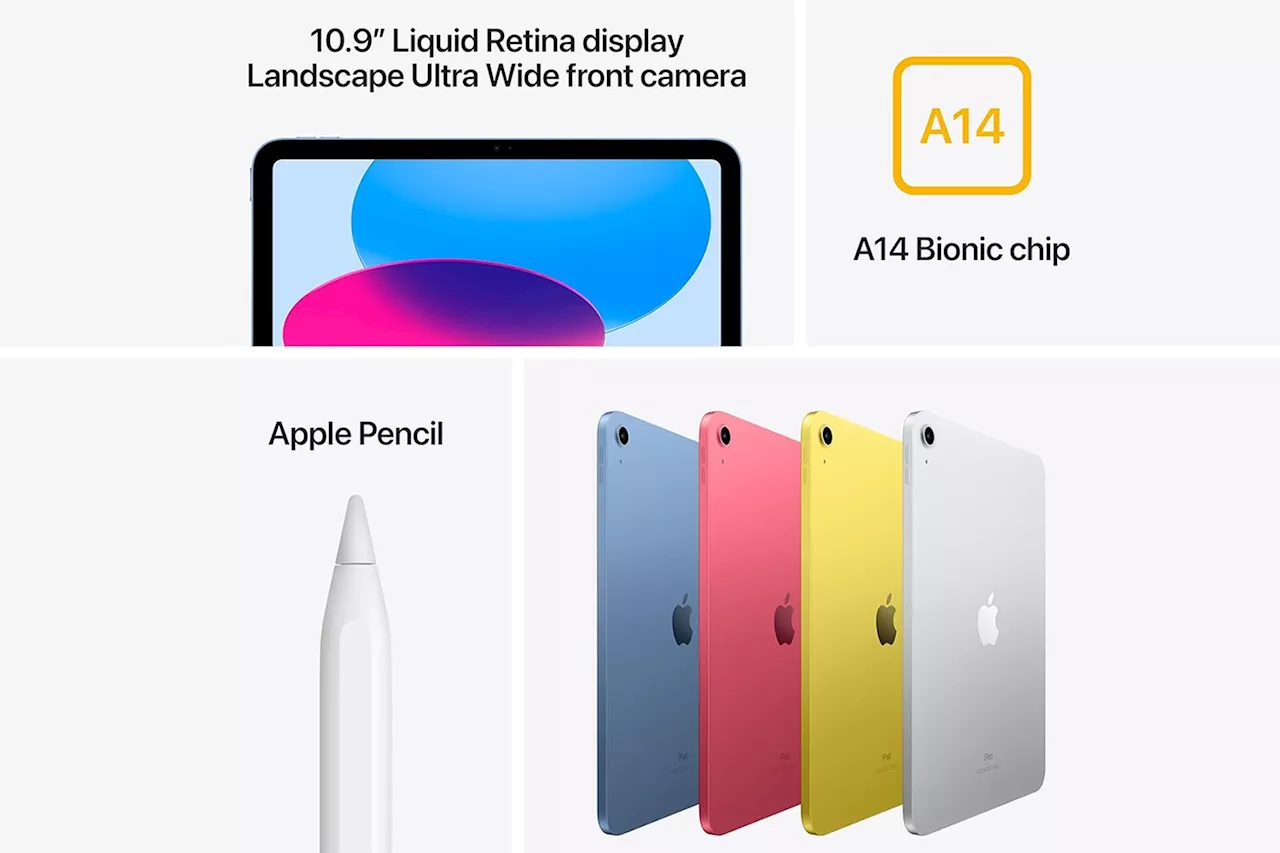 The Underrated Champion: Why the 10th Gen iPad Still ShinesDon't overlook the 2022 10th Gen iPad! This affordable tablet delivers impressive performance and features that rival its more expensive siblings. We explore why the 10th Gen iPad remains a great value in Apple's current lineup.
The Underrated Champion: Why the 10th Gen iPad Still ShinesDon't overlook the 2022 10th Gen iPad! This affordable tablet delivers impressive performance and features that rival its more expensive siblings. We explore why the 10th Gen iPad remains a great value in Apple's current lineup.
Read more »
 Why Millennials and Gen Z Are Going Gray Early, According to ExpertsNewsweek spoke to two experts who shared how premature graying may be a sign of mineral deficiencies.
Why Millennials and Gen Z Are Going Gray Early, According to ExpertsNewsweek spoke to two experts who shared how premature graying may be a sign of mineral deficiencies.
Read more »
